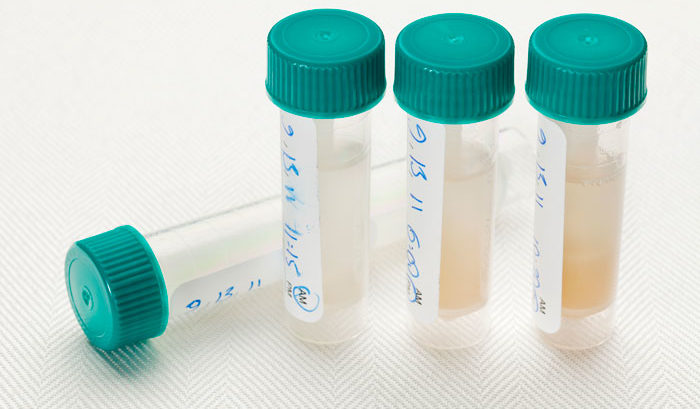In March of this year, ancestry DNA testing giant, 23andMe, announced that they would begin testing user DNA for Breast Cancer genes, more specifically identified as the BRCA1 and BRCA2 genes. While technically able to test for these genes for years, it wasn’t until this past March that the FDA officially signed off on it, therefore, making the 23andMe at-home DNA test, the first FDA-approved direct-to-consumer test to evaluate one’s potential risk for cancer.
What Can Your DNA Reveal
The test is offered as an add-on to 23andMe’s standard ancestry report for a total of $199 and is delivered alongside a variety of other reports designed to tell you if you possess certain genetic markers which may suggest a predisposition to things such as:
- Macular Degeneration
- Lung and/or Liver Disease
- Celiac Disease
- Hemochromatosis
- Hereditary Thrombophilia
- Alzheimer’s Disease
- Parkinson’s, and many more
However, 23andMe is very careful to explain that just because your report labels you at risk or cleared of certain genes signifying a predisposition to genetic diseases does not mean that you definitively will, or will not, be diagnosed with said diseases within your lifetime.
In regard to the Breast Cancer testing and as it stands in the scientific community today, there are over a thousand known mutations of the BRCA gene—only some of which have been definitively linked to an increased risk of developing cancer, others which have not, and even more whose risk is at present, unknown.
The 23andMe health testing add-on only reports on three of the genetic variants that are often associated with a significantly higher risk of developing breast and ovarian cancer. According to an article from The Atlantic, “23andMe only tests for two mutations in BRCA1 and one in BRCA2, all of which are most prevalent in the Ashkenazi Jewish population. These mutations are among the most common and best studied, but they still account for only a small fraction of hereditary breast cancers in the United States. A negative result for the three mutations highlighted by 23andMe is not, therefore, a negative result for all BRCA mutations. 23andMe has crafted a set of slides to educate customers on this distinction, though it will not offer genetic counseling directly. 23andMe encourages customers who do test positive to contact a doctor for retesting in a clinical lab.”
The Risks Of Purchasing A Home DNA Test
Over the past decade, these at-home DNA ancestry kit tests have exploded in popularity. And while millions are taking advantage of this unique opportunity to learn more about their roots and genetic makeup, the costs may not be limited to just what comes out of their bank accounts.
In 2008, the Genetic Information Nondiscrimination Act (GINA) was signed into law prohibiting employers and health insurance providers from discriminating against employees and enrollees based on their genetic test results. The catch is that this law does not include supplemental insurance products such as Term Life, Long-Term Disability, Long-Term Care, and others.
Another leading concern amongst potential customers lies hidden within the fine print of the Terms and Conditions of the companies offering this service. What happens to your sample after it is tested? Does the company you go through technically own your DNA after you send it to them? Can your DNA be sold to a third-party? These are just a few of the questions that many prospective customers still would like some additional clarity on.
According to AARP, “Your genetic code is unique. Most services promise to protect your privacy and to release your digitized data for research only with your consent. But with this consent, the company could potentially sell your DNA for a variety of purposes.”
Ancestry, in particular, has been forced to issue a number of clarifying statements in regard to protecting customer privacy, in an attempt further explain the rights and privileges you (as a customer) are giving them when you purchase their kit and mail in your sample.
Since the passage of GINA, there has been a renewed push to expand the law to also apply to some of the previously mentioned supplemental insurance types, but as of yet, no consensus has been reached.
Is Knowledge Power?
Ultimately, the only person who can decide whether taking advantage of 23andMe’s Health+Ancestry service is you.
If your only goal in receiving your personalized report is to find out if you have the BRCA 1 and/or BRCA 2, going the traditional route through your doctor may be a better fit. According to facingourrisk.org, “Under the Affordable Care Act, insurance companies are required to pay for both genetic counseling and BRCA testing for women who meet certain criteria. For these patients, insurance companies must cover the entire cost of genetic counseling and BRCA testing with no out-of-pocket costs to the individual.”
If your family history denotes that you may be at risk for developing breast cancer, and your Health Insurance company is willing to pay for counseling and testing, this may make more sense than spending nearly $200 on a series of health and ancestry reports from 23andMe.
However, if you are also interested in delving into the very core of your DNA, your genetic history, and more, the 23andMe reports may be able to offer you added value, if you are comfortable with the risks mentioned above.
Qualifying For A Special Enrollment Period
Miss out on Open Enrollment and find yourself in need of Health Insurance? Not to worry! You may find that you qualify for a Special Enrollment period. Life happens, and evolving life circumstances such as a loss of a job or a new one, a marriage or divorce, the birth or adoption of a child, and more could qualify you for a chance to review, change, or sign up for Health Insurance out of the Open Enrollment season.

